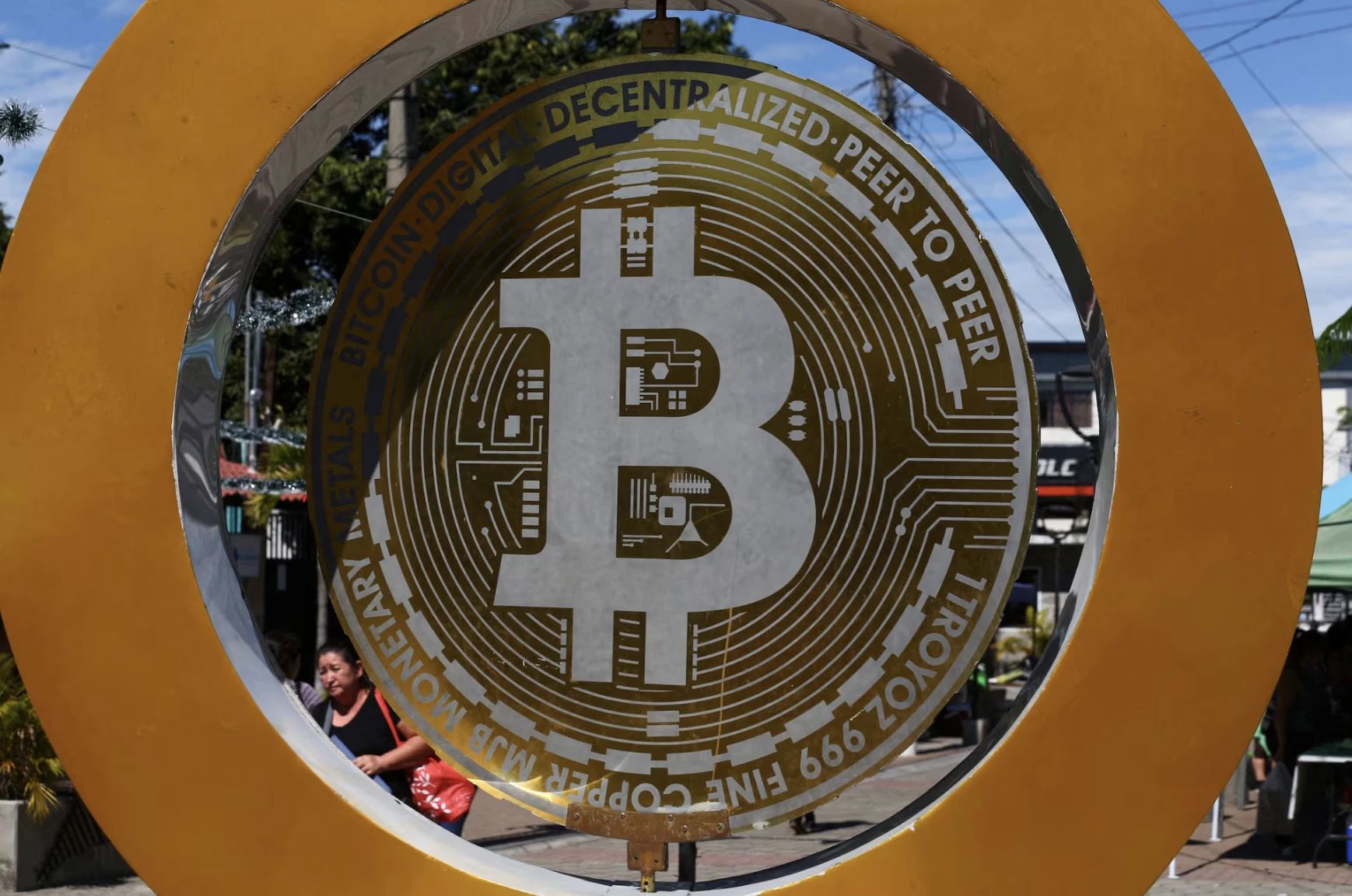On February 2nd, during the morning in the Chinese-speaking region, while still hoping for ‘the fifth day to welcome the God of Wealth’, news about ‘El Salvador has canceled Bitcoin’s legal tender status’ began to spread rapidly, causing the market to plummet.
OKX quotes show that BTC has fallen below the $100,000 mark, dropping as low as 99,026.5 USDT; ETH fell to as low as 3,068.1 USDT; SOL dropped to as low as 206.69 USDT.
As the first country to adopt Bitcoin as legal tender, El Salvador’s strong support for Bitcoin was once seen as a hallmark of cryptocurrency entering the mainstream world. If it really loses its ‘legal tender status’ now, it would naturally be a heavy blow to the mainstreaming of the entire industry… But is that really the case? Has El Salvador truly changed its attitude towards Bitcoin? We will gradually unveil these answers in the following text.
Reasons for the abrupt change
In 2021, under the extreme support of cryptocurrency by President Nayib Bukele, El Salvador became the first country in human history to adopt Bitcoin as legal tender.
Subsequently, El Salvador required that all prices of goods in the country could be expressed in Bitcoin; any economic entity must accept Bitcoin as payment; Bitcoin transactions would not be subject to capital gains tax, and taxes could be paid using cryptocurrencies.
However, El Salvador’s radical strategy has faced strong opposition from the International Monetary Fund (IMF).
The so-called IMF is one of the international organizations established on December 27, 1945, in Washington, under the Articles of Agreement of the International Monetary Fund signed at the Bretton Woods Conference in July 1944. The IMF was established simultaneously with the World Bank and is one of the two major financial institutions in the world, responsible for monitoring currency exchange rates and trade conditions among countries, providing technical and financial assistance, and ensuring the normal operation of the global financial system.
From the IMF’s perspective, El Salvador’s practice of adopting Bitcoin as legal tender is ‘extremely risky’ and could trigger ‘a series of macroeconomic, financial, and legal issues’. Therefore, for more than the past two years, the IMF has been pressuring El Salvador to mitigate the related risks.
Returning to the recent timeline, El Salvador urgently needed a $1.4 billion loan from the IMF to promote government reforms, but the IMF still required El Salvador to modify Bitcoin-related laws by the end of January. Therefore, on January 29, local time, the Salvadoran Congress (mainly composed of new ideas party members where Nayib Bukele belongs) quickly approved a bill modification on Bitcoin submitted personally by President Nayib Bukele with a vote of 55 in favor and 2 against — which is the so-called ‘cancellation of Bitcoin’s legal tender status’ that is being widely discussed today.
Core Controversy: Time and Expression
Note that there are two key points that need to be emphasized and explained.
One is the timing of the passage of this bill modification. As mentioned above, Nayib Bukele’s proposal was passed on January 29, just four days ago. In fact, mainstream media like Reuters had tracked this event at that time but did not attract much market attention.
Looking back at historical reports, we find that the IMF’s official website had already made relevant statements on this matter as early as December 18, 2024. This statement was jointly issued by the IMF working team led by Luis Cubeddu, Deputy Director of the IMF Western Hemisphere Department, and Raphael Espinoza, head of the Salvadoran delegation, after discussions in El Salvador from December 5 to 14, 2024 — in other words, El Salvador and the IMF had reached a consensus as early as last December to modify the Bitcoin bill.
So why has this event sparked renewed discussions today and triggered a market crash? The answer lies in the second key point ‘expression’.
Looking back at the statements made by the IMF and El Salvador in their joint statement:
According to IMF policy, the potential risks of Bitcoin-related projects will be greatly reduced. Legal reforms will allow the private sector to voluntarily accept Bitcoin. For the public sector, participation in Bitcoin-related economic activities and transactions will be restricted; taxes can only be paid in US dollars; government participation in the cryptocurrency e-wallet (Chivo) will be gradually phased out. The transparency, regulation, and supervision of digital assets will be strengthened to ensure financial stability, consumer and investor protection, and financial integrity.
The day after the statement was released, Stacy Herbert, director of El Salvador’s National Bitcoin Office (ONBTC), also responded on X:
The Salvadoran parliament accelerated Bitcoin reforms after reaching an agreement with the IMF… ruling party legislator Elisa Rosales stated that this reform is to ensure Bitcoin’s ‘permanent status as legal tender’ while promoting its ‘actual adoption’.
It can be seen that the IMF and El Salvador only emphasized the term ‘reform’ in their joint statement and did not explicitly mention that ‘El Salvador will cancel Bitcoin’s legal tender status’. Reuters’ report also emphasized ‘reform’, and officials and legislators from El Salvador, including Stacy Herbert and Elisa Rosales, all responded that ‘Bitcoin will continue to be legal tender’.
The reason why this event is being discussed anew today and causing the market to collapse is that some media have noticed the report from the Spanish media EL PAIS — the original title of this media’s article was (Nayib Bukele changed his mind and canceled Bitcoin’s legal tender status in El Salvador) — which accelerated the secondary dissemination of this event.
As a news practitioner, I personally find it difficult to criticize EL PAIS for this expression. In the different expressions regarding the same event, it seems that each party has its reason:
Has El Salvador ‘changed its mind’?
Compared to dwelling on whether ‘El Salvador has canceled Bitcoin’s legal tender status’, another question seems easier to answer — Has El Salvador truly changed its attitude towards Bitcoin?
We can clearly give a negative answer.
Looking at the progress of El Salvador’s promotion of Bitcoin bill reforms, after being under pressure for two years, the reason El Salvador chose to compromise at the last deadline given by the IMF is most likely due to the necessity of a $1.4 billion loan.
Moreover, more importantly, from the IMF’s official statement, it is clear that the final negotiations between both parties occurred in December 2024, and the statement was made on December 18. Just one day later, ONBTC Director Stacy Herbert announced that El Salvador would continue to purchase Bitcoin as part of its strategic Bitcoin reserve, possibly at a faster pace.
Since then, El Salvador has indeed accelerated the pace of Bitcoin purchases, continuing to make multiple buy operations after the bill reform on January 29. Official data from ONBTC shows that El Salvador’s strategic Bitcoin reserves currently hold a total of 6,055 Bitcoins.
John Dennehy, founder of the local Salvadoran Bitcoin startup Mi Primer Bitcoin, stated: ‘As far as I know, El Salvador’s Bitcoin reserve plan will not be affected by the IMF agreement, at least not at the beginning.’


